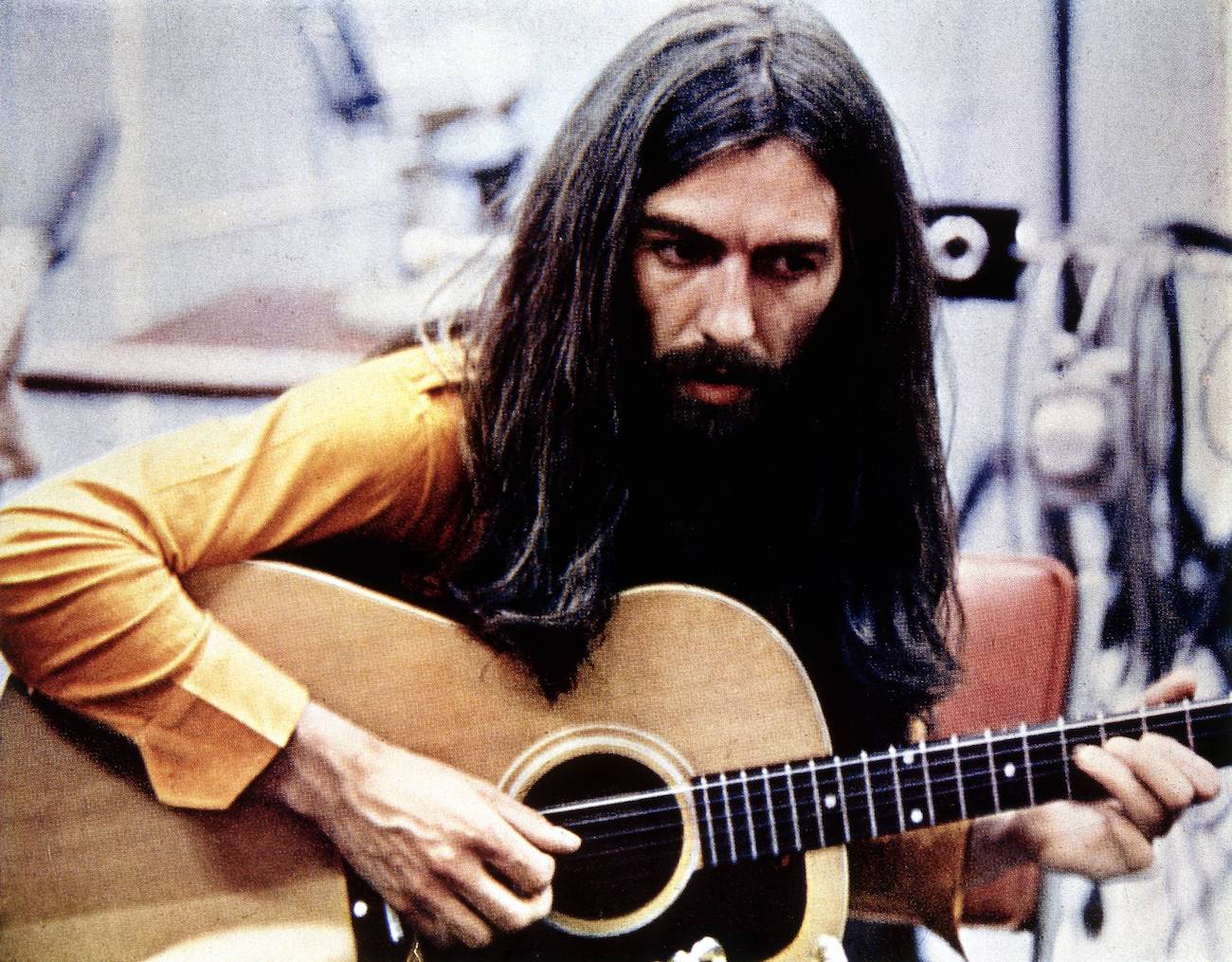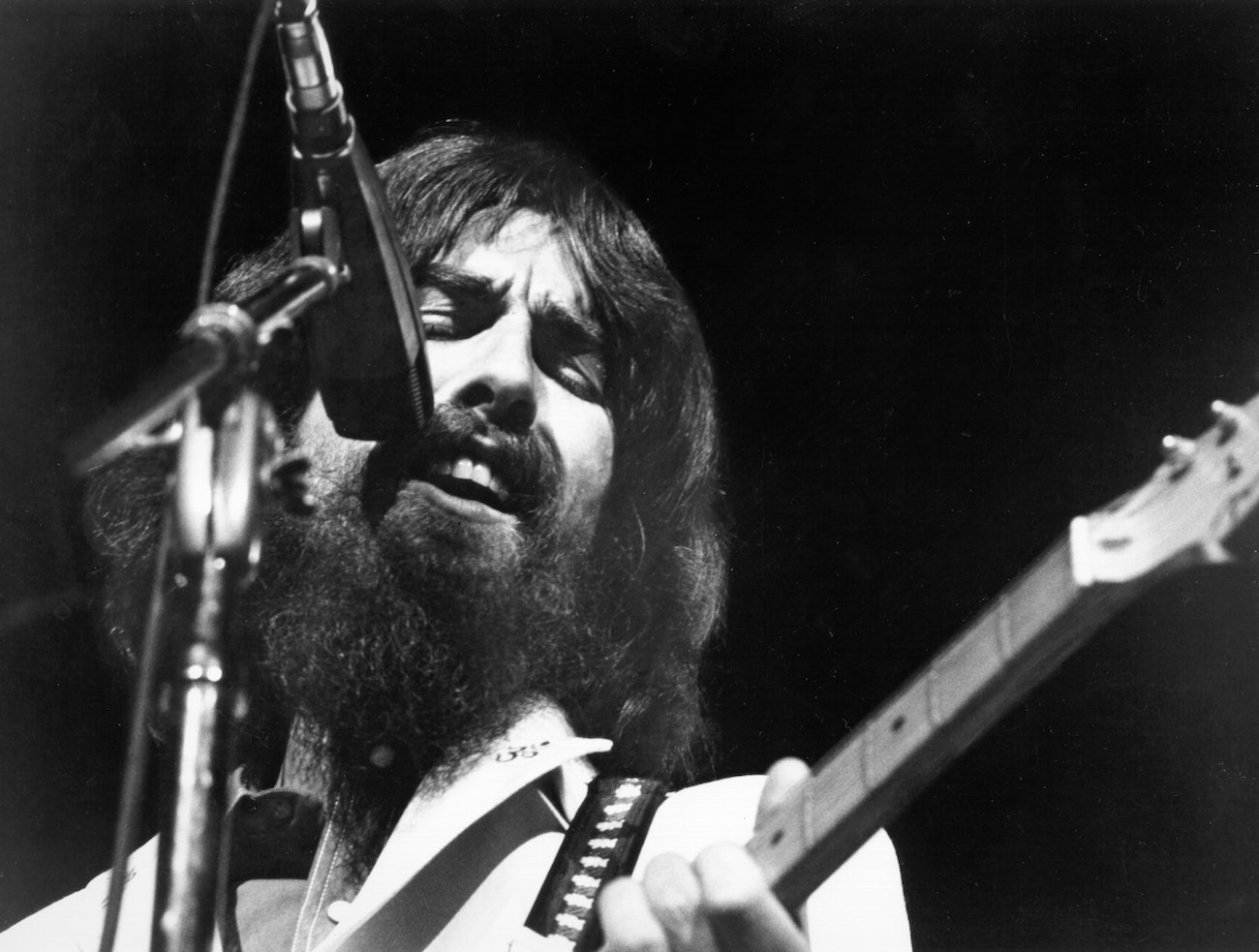
What George Harrison Disliked About American TV: ‘I Can’t Watch TV in America’
George Harrison didn’t enjoy American TV because it wasn’t nearly as good as British TV. The former Beatle also didn’t enjoy American films.

George Harrison cursed on American TV
During a 1971 interview on The Dick Cavett Show (per George Harrison on George Harrison: Interviews and Encounters), George explained that he didn’t enjoy American TV after accidentally cursed on the program.
George said, “[Bleeped comment.] … Bleep!” Cavett added, “George! Uh, [chuckles] television in America isn’t as mature as it is in England. You can’t say certain things.”
George responded, “No. It’s very good in England. I can’t watch TV in America, to tell you the truth. It’s such a load of rubbish. Yeah. Terrible. Not ‘The Dick Cavett Show,’ of course.”
George disliked bleeping on American TV. However, he disliked something else about American TV more.
What George hated the most about American TV
George also disliked commercials on American TV.
He explained, “It just drives you crazy, the commercials, you just get into something and it’s, ‘Sorry, now another word from …’ and, ‘Another word from …’ and in the end they just put commercials on all the time.”
Cavett interjected that British TV must have commercials too.
“Yeah, but it’s really done good you know, it’s really done good,” the former Beatle replied. “They show maybe—if it’s a thirty-minute show they’ll have the commercial at the beginning, and then the show will start, and after fifteen minutes or so it will end.
“And it will say, ‘End of Part 1,’ ding, and then it goes into the commercial, and then the commercials end, and then it says, ‘Part 2.’ Here it just goes ching, ching, ching, from one into the next. You don’t know if it’s a commercial or if it’s the show.”
George also didn’t like American films.
The former Beatle didn’t enjoy American films either
George had a hard time liking American films as well. He told Film Comment that he didn’t want his production company, HandMade Films, to become an American company.
George said, “I personally would not like to see HandMade Films turn into an American company in New York or Los Angeles. I like it being in a nice little office in England.
“I like to have American actors and directors… But I wouldn’t like us to become some big swanky American company. At that point, I’d probably bail out.”
However, George knew that the American market was essential. Still, making an American film wasn’t easy, especially when most of HandMade Films’ movies had English humor. “To really make it, you have to have some success in America—in film and in records,” George said. “But you need a big response in the American market to pay the bills, to pay back the money and make the thing work.
“The turning point for our company came in the last year or two, when some of the films we made strictly as slow-budget projects got accepted in America. Mona Lisa was one. Withnail and I was another—which came as something of a shock. I really enjoy the film personally, but thought there wasn’t a snowball’s chance of the American people getting this kind of humor. The jokes seem very English to me. I’m glad to say I was wrong about that.
“We’ve always been told that Americans want things to happen crash! bang! wallop! and want a film to be paced quickly. You get so terrified when there’s actually dialogue going on and people have to use their brains and listen.
“We’ve tried to give people credit for wanting to see a film with some kind of plot, dialogue, depth, and were pleasantly surprised that there are Americans who don’t mind working a bit—particularly given all the competition these days… It’s ruthless—even more ruthless than the record business.”
Fortunately, George didn’t have to work much in the American TV, film, or music industry.


